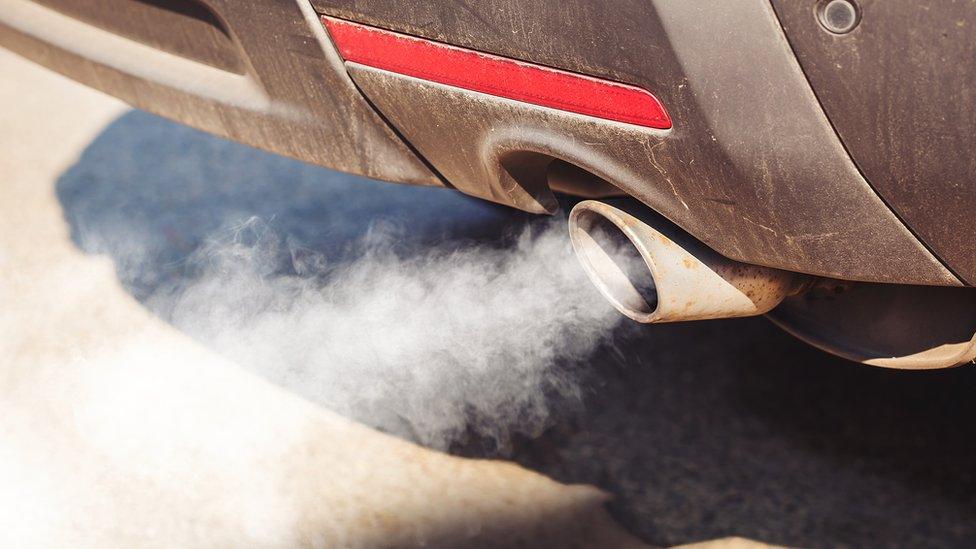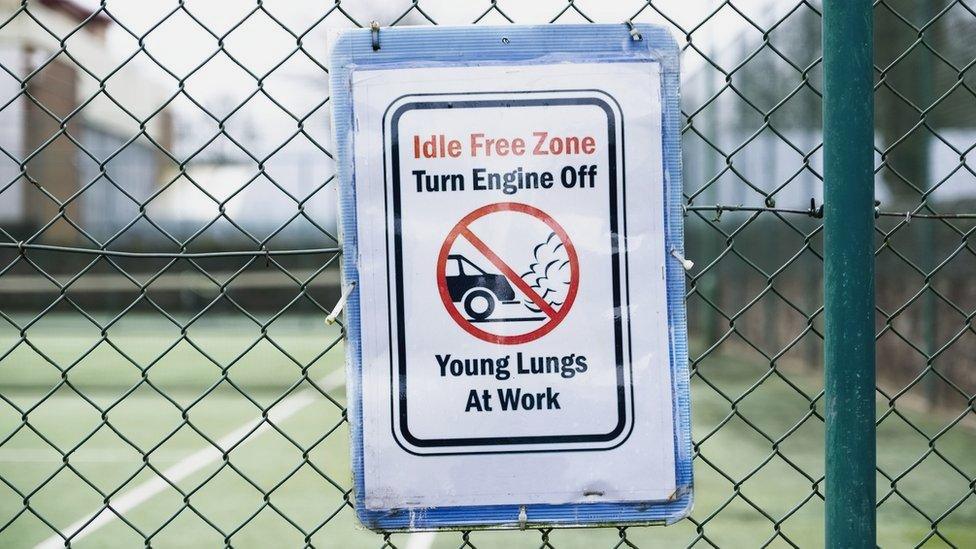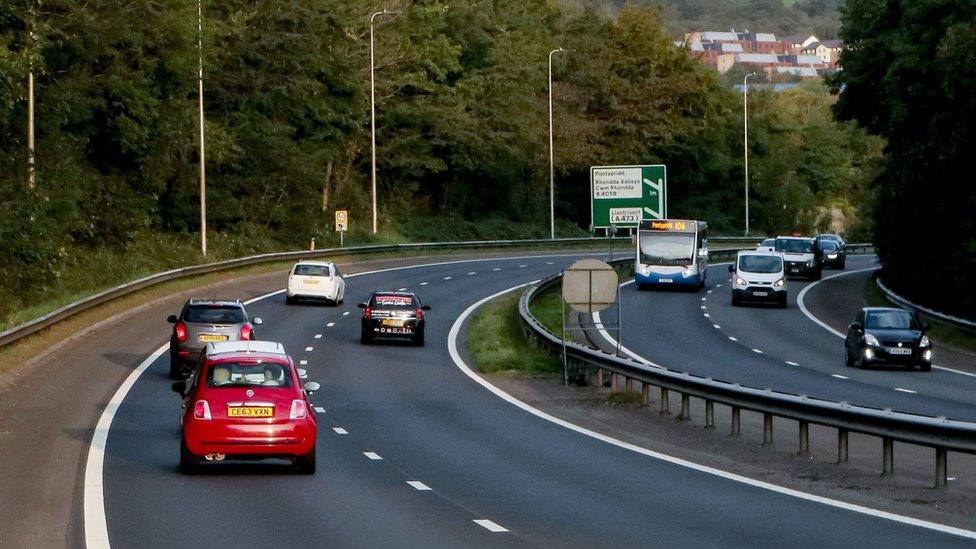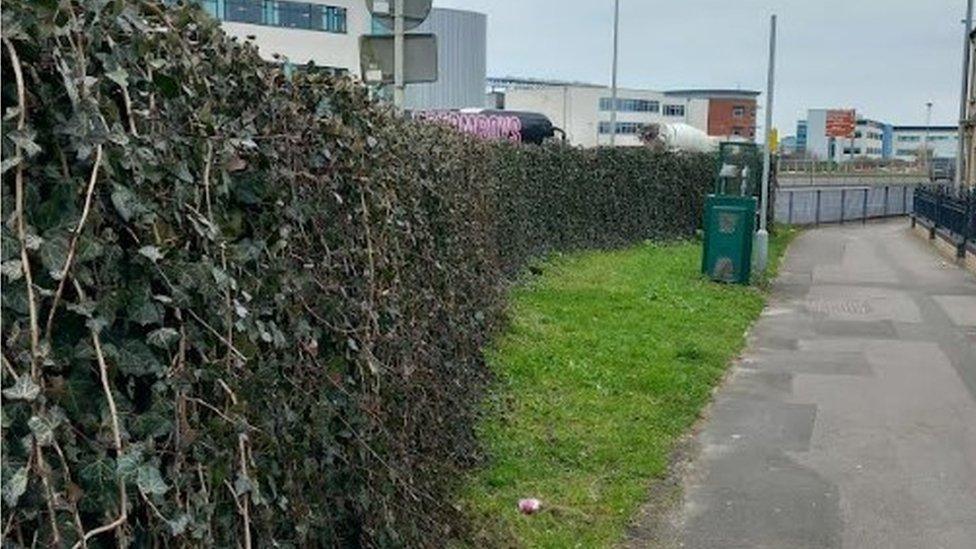Air pollution: Steeper fines for idling car 'repeat offenders' - minister
- Published

The Welsh government is considering allowing fines of between £40 and £80
Only "repeat offenders" will face steeper fines if they leave the engine running in a parked car, a Welsh government minister has said.
Fines of up to £80 for idling have been proposed as part of a clean air law going through the Senedd.
Road charges and targets to cut harmful pollution could also be introduced as a result of the long-awaited legislation.
Minister Julie James said the targets would "stretch" the government but they must be "achievable and realistic".
Idling
Idling - leaving the engine running in a parked vehicle - currently carries a fine of £20, but the government is considering allowing fines of between £40 and £80.
The Environment Bill would also mean councils could issue bigger fines outside schools or hospitals.
Climate Change Minister Ms James told the Senedd's Climate Change Committee the government wanted to "educate people as to the consequences of the way that they currently behave".
She said: "There are penalties associated with this, but we would very much be in a position of trying to make sure that only people who are repeat offenders who really are taking no notice of any of the advice coming out from schools and care homes and hospitals and all the rest of it about the effect of, for example, idling outside are then fined."

Ministers are particularly concerned about cars idling outside schools
A review of school transport policies and forthcoming bus regulations would also encourage parents to leave the car at home during the school run.
The minister said: "All of those are designed to try to stop people taking their children to school in a car unless there absolutely isn't another option, and even if they do that to park far enough away from the school and not sit with the engine running outside it for obvious reasons."
A £20 fine "clearly isn't enough", she said.
Labour MS Jenny Rathbone said: "The existing regulations don't work at the moment because I constantly come across people who give two fingers to requests to turn off their engine."
Road charges
The bill would let the government create clean air zones on busy roads where drivers of heavily-polluting vehicles have to pay.
Stretches of the M4 near Newport and the A470 near Pontypridd have been looked at, but the government insists it would only introduce charges if 50mph zones fail to cut the amount of nitrogen dioxide from vehicle exhausts.
Ms James said "scoping work" would finish later this year, but "at the moment we think our reduction of the speed limits and variable speed limits will actually help".
She added that she was talking to some councils about creating clean air zones on the roads they control in towns and cities, but it was too early to say whether that would happen.
Targets
Targets for acceptable levels of pollution are not included in the bill. Instead, the government will set targets later so they can be kept up to date with the latest guidance, Ms James said.
A target for a type of pollution known as PM2.5 - tiny toxic particles and chemicals - will have to be set within three years of the bill coming into law.
Ministers will get powers to set targets on other gases and pollutants, but first they "need to get the data to know what's even in our air in some places at the moment, never mind what the healthy level of that might look like", Ms James said.
She said she wanted targets that "stretch" the government, but: "I'm afraid I would say to the whole committee I'm very, very sceptical of setting targets that are ambitious but pretty much impossible."
She added: "I can't emphasise enough how important it is for these targets to be realistic and achievable in the sense of a ladder of where we need to get to."
Related topics
- Published21 March 2023

- Published10 March 2023

- Published13 March 2022
